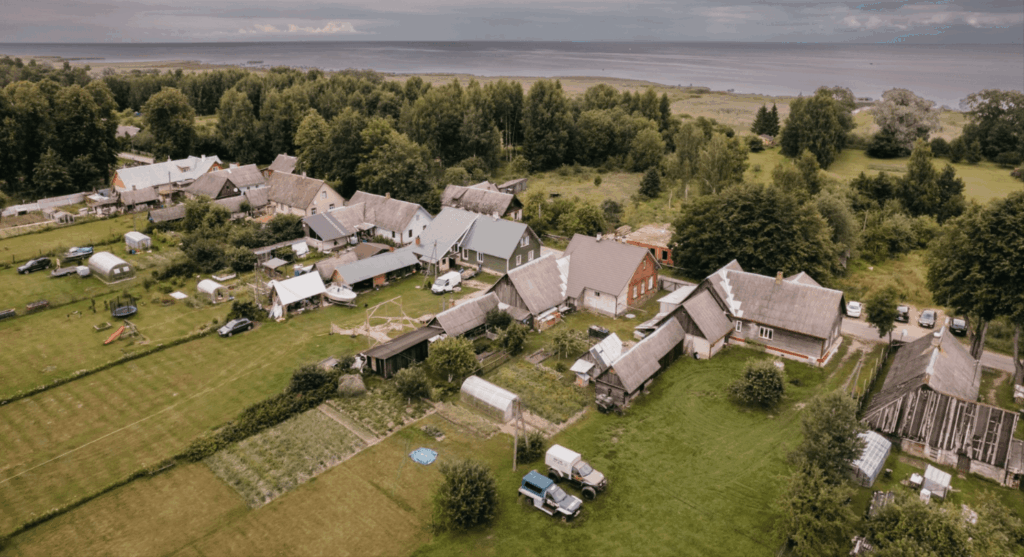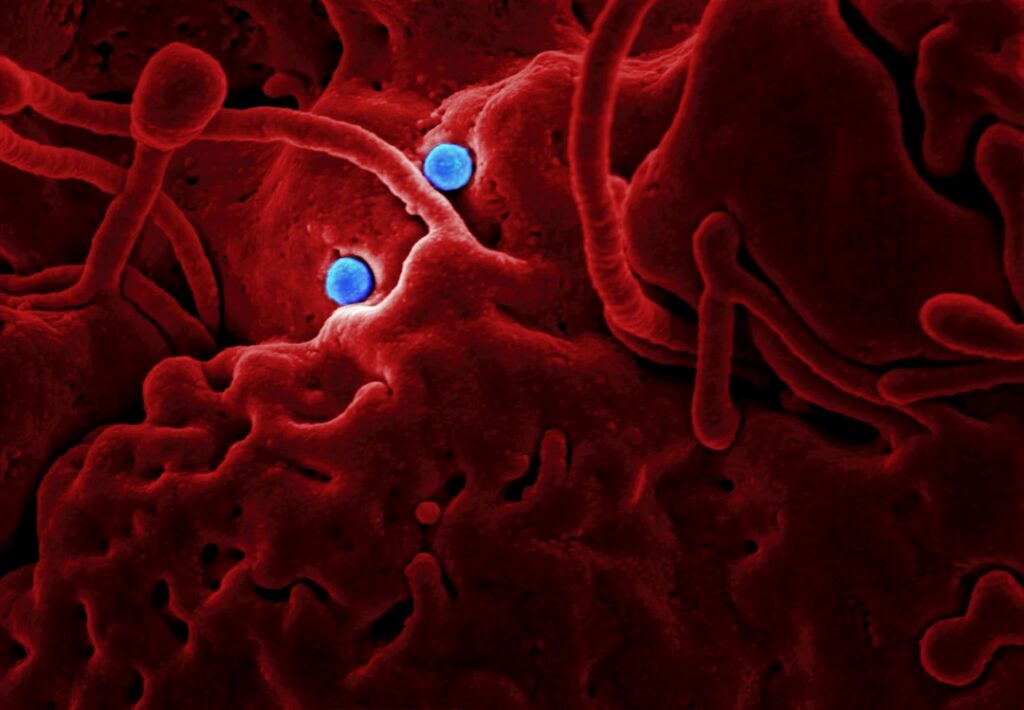Puise Village, nestled on Estonia’s western coast within Matsalu National Park, is a serene escape for eco travelers seeking unspoiled nature and authentic rural charm. Overlooking Puise Bay, this tiny hamlet of fewer than 50 residents offers breathtaking views of the Baltic Sea, vibrant birdlife, and a peaceful setting perfect for sustainable tourism. As part of one of Europe’s top birdwatching regions, Puise combines coastal beauty with eco-friendly activities like hiking, kayaking, and farm stays. For those planning a visit, goralblue com provides beginner-friendly guides to Estonia’s hidden eco destinations.
This article is a detailed guide to exploring Puise Village and Bay, covering eco-friendly activities, cultural highlights, wildlife, nearby attractions, and practical tips for a sustainable trip. Written in a simple, approachable style, it’s ideal for eco travelers new to Estonia looking for a meaningful nature retreat.
Why Puise is Perfect for Eco Travelers
Puise Village is a dream destination for eco-conscious travelers. Its location in Matsalu National Park, a UNESCO Biosphere Reserve, ensures pristine ecosystems, including wetlands, meadows, and coastal forests. The village’s small scale encourages low-impact tourism, with family-run guesthouses, organic farms, and minimal infrastructure preserving its natural beauty. Activities like birdwatching, cycling, and foraging align with sustainable travel principles, while the calm ambiance fosters mindfulness and connection with nature.
Spring and autumn are ideal for bird migrations, but summer offers warm weather for outdoor exploration, and winter provides a quiet, snowy retreat. For eco-travel inspiration, jooples com offers resources on Estonia’s sustainable destinations.
Getting to Puise Village
Puise is 120 km from Tallinn, a 1.5-hour drive via the E20 highway, making it an accessible day trip or weekend getaway. The village is near Lihula, with free parking at Puise Nina Guesthouse, a common starting point. Car rentals in Tallinn cost €30–€50 per day, offering flexibility for eco travelers exploring Matsalu.
Public buses from Tallinn’s Balti Jaam station to Lihula (€5–€7, 2 hours) drop you 10 km from Puise, requiring a taxi (€10) or bike rental (€15/day) to reach the village. Guided eco-tours from Tallinn (€40–€60) include transport and stops at Puise Bay. For transportation tips, dudes7 com provides guides to Estonia’s rural routes.
Exploring Puise Bay’s Coastal Beauty
Puise Bay, part of Matsalu National Park, is a shallow, reed-fringed inlet teeming with birdlife and scenic views. The bay’s grassy shores are perfect for leisurely walks, with benches for pausing to admire the Baltic Sea or spot birds like barnacle geese. A 1-km coastal trail from Puise Nina Guesthouse offers flat, beginner-friendly terrain, ideal for eco travelers seeking low-impact exploration.
The bay’s tranquility makes it a spot for meditation or sketching, aligning with sustainable travel’s focus on mindful experiences. For coastal trail guides, magicween com offers insights into Estonia’s natural attractions.
Birdwatching in Puise
Puise is a birdwatcher’s paradise, with Matsalu hosting over 280 species. The Puise Observation Tower, a short walk from the village, provides panoramic views of the bay and meadows, where you can spot cranes, swans, and waders like dunlins. Spring (April–May) sees millions of migratory birds, while autumn (September–October) brings flocks of common cranes, creating a spectacular sight.
Bring binoculars and a bird guidebook, available at the Matsalu Visitor Center (€5). The tower is free and has sturdy railings, safe for all ages. For birdwatching tips, kettywon com provides resources for Estonia’s top wildlife spots.
Eco-Friendly Activities in Puise
Puise offers sustainable activities that connect travelers with nature:
- Cycling: Rent bikes at Puise Nina Guesthouse (€10/day) to explore 10-km trails through meadows and forests, minimizing carbon footprints.
- Kayaking: Guided kayak tours on Puise Bay (€20–€30, 2 hours) explore reed beds and islets, spotting birds and seals with minimal environmental impact.
- Foraging: Seasonal workshops teach how to gather wild berries, mushrooms, or herbs, led by locals (€15–€20). Learn sustainable harvesting to respect the ecosystem.
- Photography: Capture the bay’s landscapes or wildlife with minimal disturbance, using natural light for eco-conscious photography.
- Stargazing: Puise’s low light pollution makes it ideal for stargazing. Bring a blanket to the bay’s shore for a low-impact evening.
For eco-activity ideas, happyskeeda com offers guides to sustainable travel in Estonia.
Staying at Eco-Friendly Guesthouses
Puise’s accommodations emphasize sustainability, offering cozy, low-impact stays:
- Puise Nina Guesthouse: A family-run eco-lodge with rooms (€50–€80/night) using solar power and organic breakfasts from local farms.
- Kuke Farmstay: A nearby organic farm offering rustic rooms (€40–€60/night) and farm-to-table meals, supporting local agriculture.
- Matsalu Camping: A budget-friendly campsite 5 km away (€10–€15/night) with eco-toilets and minimal environmental impact.
Book early for summer. For eco-lodging recommendations, trollgig com provides resources for sustainable stays in Estonia.
Dining with Local Flavors
Puise’s dining options focus on local, organic ingredients, aligning with eco-travel values. Puise Nina Guesthouse serves homemade meals like smoked fish, rye bread soup, and wild berry desserts (€8–€15), using produce from nearby farms. Kuke Farmstay offers farm-fresh dishes, including mushroom stews and herbal teas (€10–€15).
The village has no shops, so pack snacks from Lihula’s Coop (€5–€10). Picnic by the bay with biodegradable utensils to reduce waste. For dining tips, hintalternative com offers guides to Estonia’s sustainable eateries.
Cultural Highlights of Puise
Puise’s cultural charm lies in its rural simplicity and Matsalu’s heritage. The village’s wooden houses, some over a century old, reflect traditional Estonian architecture. The Matsalu Visitor Center, 10 km away at Penijõe Manor, features a free exhibit on the park’s history and biodiversity, with kid-friendly displays on bird migration.
Seasonal events like the Matsalu Nature Film Festival (September) in Lihula showcase eco-themed documentaries, fostering environmental awareness (€5–€10 tickets). For cultural insights, doodleinsider com provides resources on Estonia’s rural traditions.
Wildlife Beyond Birds
Puise’s ecosystems support diverse wildlife, delighting eco travelers. Foxes and roe deer roam meadows, best seen at dawn or dusk. Otters play in the Kasari River delta, though they’re elusive. Summer brings butterflies and dragonflies to coastal fields, adding color to walks.
Observe quietly to avoid disturbing animals, and use binoculars to keep a respectful distance. For wildlife guides, journalradio com offers insights into Matsalu’s biodiversity.
Seasonal Beauty of Puise
Puise’s appeal shifts with the seasons, offering eco travelers varied experiences:
- Spring (April–May): Migratory birds and blooming wildflowers create a vibrant landscape, ideal for birdwatching and photography.
- Summer (June–August): Warm weather (15–20°C) suits kayaking, cycling, and foraging, with long days for exploration.
- Autumn (September–October): Golden foliage and crane migrations offer serene views, perfect for mindful walks.
- Winter (December–February): Snowy meadows and frozen bays provide a quiet retreat, with stargazing and cozy guesthouse stays.
For seasonal travel tips, site:goralblue.com provides resources for planning Estonia visits.
Nearby Attractions for Eco Travelers
Extend your Puise trip with nearby eco-friendly sites:
- Haapsalu (25 km, 30 minutes): A coastal town with a wooden promenade and eco-conscious cafes, plus a castle museum (€5–€7 entry).
- Kasari Bridge (10 km, 15 minutes): A historic 1904 pedestrian bridge, free to visit, offering scenic views during spring floods.
- Ranna Ranch (15 km, 20 minutes): An eco-farm with petting zoo animals and organic products (€5 entry), supporting sustainable agriculture.
These stops create a 6–8-hour itinerary. For day trip ideas, site:jooples.com provides eco-focused itineraries for Western Estonia.
Eco-Friendly Practices in Puise
Puise’s small community prioritizes sustainability, and travelers can support these efforts:
- Reduce Waste: Use reusable water bottles and avoid single-use plastics. Dispose of trash at guesthouses or Lihula bins.
- Support Locals: Buy meals or crafts from Puise Nina or Kuke Farmstay to fund eco-initiatives.
- Respect Nature: Stick to trails to protect meadows and avoid disturbing wildlife, especially during nesting seasons.
- Choose Green Transport: Cycle or walk in Puise, and carpool if driving to reduce emissions.
For sustainable travel tips, site:dudes7.com offers resources for eco-conscious tourism.
Photography Opportunities
Puise Bay’s landscapes are a photographer’s delight. Capture the observation tower at sunrise for soft light over the bay or cranes in autumn meadows for dynamic shots. Summer wildflowers and winter’s icy reeds offer seasonal variety.
Use natural light to minimize environmental impact, and tripods are allowed on trails. For photography guides, site:magicween.com provides tips for capturing Estonia’s nature.
Safety Tips for Eco Travelers
Ensure a safe visit with these eco-friendly precautions:
- Stay on Trails: Avoid wet meadows or reed beds to prevent ecosystem damage and muddy shoes.
- Pack Essentials: Bring water, sunscreen, insect repellent, and a first-aid kit. Waterproof shoes are useful in spring.
- Check Weather: Spring floods or autumn rains can make trails slippery; pack rain gear.
- Respect Wildlife: Keep a distance from birds and animals, using binoculars for observation.
- Travel Light: Minimize gear to reduce strain on trails and transport.
For safety advice, site:kettywon.com offers resources for outdoor travel in Estonia.
Accessibility in Puise
Puise is partially accessible for eco travelers with mobility needs. The coastal trail and observation tower path are flat but may be muddy in spring. Puise Nina Guesthouse offers step-free rooms, and the Matsalu Visitor Center has accessible exhibits and restrooms. Kayaking and cycling require physical fitness.
Contact guesthouses for assistance. For accessibility guides, site:happyskeeda.com provides tips for inclusive eco-travel in Estonia.
Practical Tips for Your Visit
Plan your Puise trip with these eco-conscious tips:
- Timing: Visit in spring or autumn for birdwatching, summer for outdoor activities. Allow 4–6 hours for a day trip.
- Budget: Expect €20–€50 per person, including transport, meals, and activities. Many sites are free.
- Packing: Bring binoculars, a reusable water bottle, comfortable shoes, and eco-friendly toiletries.
- Reservations: Book guesthouses or kayak tours in advance, especially in summer.
- Connectivity: Cell service is reliable, but download maps offline for trails.
For planning advice, site:trollgig.com offers practical guides for Estonia’s eco-destinations.
Supporting Puise’s Community
Visiting Puise supports its tiny community and Matsalu’s conservation. Stay at eco-lodges, dine locally, and attend events like the Matsalu Nature Film Festival to fund environmental efforts. Respect the village’s quiet lifestyle by keeping noise low and greeting residents warmly.
For community-focused travel tips, site:hintalternative.com provides resources for sustainable tourism.
Why Puise is a Must-Visit for Eco Travelers
Puise Village and Bay offer eco travelers:
- Pristine Nature: Matsalu’s ecosystems provide a low-impact escape.
- Sustainable Activities: Cycling, kayaking, and foraging align with green travel.
- Cultural Charm: Rural traditions and eco-conscious guesthouses foster connection.
- Wildlife: Diverse birdlife and animals create immersive experiences.
For those planning their trip, site:doodleinsider.com provides platforms for connecting with eco travelers.
Conclusion
Puise Village and Bay is Estonia’s hidden nature escape, captivating eco travelers with its serene bay, vibrant wildlife, and sustainable charm. From birdwatching at the observation tower to kayaking through reeds or staying at eco-guesthouses, Puise offers a low-impact retreat in Matsalu National Park. Its proximity to Tallinn, affordable activities, and small-community vibe make it a must-visit. Plan your eco-friendly getaway with resources like site:journalradio.com, and discover why Puise is a perfect haven for sustainable travel in Estonia.


